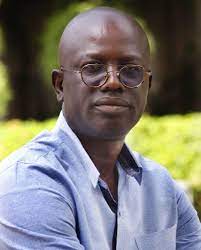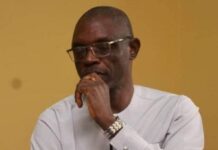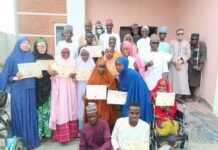Endless Bloodletting on the Plateau
By Olusegun Adeniyi
Gunmen emerged from nowhere on 8 July 2012 as then Chairman of the Senate Committee on Health, Gyang Dantong and then Majority Leader of the Plateau State House of Assembly, Gyang Fulani led mourners at a mass burial of victims of attack on villages in Barkin Ladi and Riyom local government areas.
By the time the dust settled, the two lawmakers had been gruesomely murdered along with several others. Although then member representing Barkin-Ladi/Riyom Constituency in the House of Representatives, Simon Mwadkon suffered serious gunshot injuries, he survived the attack.
My column in the aftermath, ‘Fire from the Mountains’ is one of more than a dozen I have written on this perennial tragedy that has turned one of the most beautiful parts of our country into a killing field.
Even as I write, bodybags are still being counted from the orgy of violence that began on Christmas eve. As many as 160 people were killed in Bokkos, Barkin Ladi and Mangu local governments. The assailants, according to Governor Caleb Mutfwang, targeted 17 communities in “senseless and unprovoked” attacks, burning down most houses in the area.
“As of this morning, in Bokkos, we are counting not less than 100 corpses. I am yet to take stock of (the deaths in) Barkin Ladi,” an apparently traumatised Mutfwang told people of the state in a Christmas Day broadcast.
In another broadcast on Monday to herald the new year, Mutfwang said the violence was not a result of clashes between farmers and herders.
“For the avoidance of doubt, it is a misrepresentation of facts to describe these needless and unprovoked attacks on our people as a farmer-herder clash as has always been the traditional narrative. Let us call a spade a spade; this is simple genocide!”
I agree with the governor that this madness is much deeper than the perennial conflict between herders and farmers. But I cannot agree with his characterization of the genesis:
“From small eruptions of conflict sometime in 2001, no one could have imagined that our dear state would witness such unquantifiable bloodshed of innocent lives, some known and others unknown.” The ‘Jos Riots’ between 7 and 17 September 2001 shattered the peace of the state and claimed almost a thousand lives on both sides.
They were more than “small eruptions”. Perhaps what the governor means is that the whole madness started as a reaction to the appointment of a local coordinator for the federal government poverty alleviation programme by the President Olusegun Obasanjo administration.
Three years later, the madness moved to Yelwa town in the same state. First, on 24 February 2004, no fewer than 49 Christian worshippers were brutally murdered in a church with dozens of others killed within the community.
What followed was predictable. On 2 and 3 May of same year, revenge killings claimed more than 600 lives. Since Kano people identified with victims of the second Yelwa attacks, that city also exploded in violence, claiming the lives of more than 200 people, mostly southerners and Christians.
These are recorded facts of history. I recommend two American Human Rights Watch (HRW) reports, ‘Jos: A City Torn Apart’ (December 2001) and ‘Nigeria: Revenge in the Name of Religion: The Conflict in Yelwa’ (May 2005) for those who may want to learn more about this recurring tragedy.
As all problems associated with land occupation and a mix of ethnicity and religion, I am not naïve enough to imagine there are easy solutions to the current challenge in Plateau State. But we must locate this tragedy and the earlier ones within the context of tit-for-tat ethno-religious violence that has defined Jos and environs since September 2001.
If, as the saying goes, an eye for an eye makes the world go blind, those behind the violence on all sides must understand that being reduced to undertakers cannot be a way of life. Yet, when a society is in decline, as I have also written several times on this page, people look for solutions where they do not exist.
Going through my archives last weekend, I saw many of my interventions between 2001 and 2007 on the crisis in Plateau State. One stands out due to the bigger picture painted. It was after the 2004 Yelwa tragedy which spread to Kano. President Obasanjo had visited Plateau State where he held a meeting with elders and leaders of thought at Government House, Rayfield, Jos.
At the session, then Plateau State Chairman of the Christian Association of Nigeria (CAN), Reverend Yakubu Pam remarked that Obasanjo granted a one-sided audience to the Islamic Council of Ulama on the crisis, asking why the president never visited after the February attack.
Before Pam could conclude his remark, Obasanjo interrupted him angrily, “What role have you played to bring peace as CAN chairman in Plateau State? CAN my foot! What kind of CAN chairman are you? Did your own Christianity teach you about revenge? You are an idiot. A total idiot. And I have no apologies for that.”
It was on that acrimonious note that the session ended. Two months later, I was in Abuja for the Nigeria Extractive Industries Transparency Initiative (NEITI) meeting when our chairperson, Mrs Obiageli ‘Oby’ Ezekwesili, then Senior Special Assistant to the President on Price Intelligence and Budget Monitoring, asked whether I could join her and three others on a trip to Bauchi to visit then Governor Ahmed Adamu Muazu to commission projects. I didn’t hesitate.
The three others included then Finance Minister and current World Trade Organisation (WTO) Director General, Dr Ngozi Okonjo-Iweala, her Federal Capital Territory (FCT) counterpart, Mallam Nasir el-Rufai and then Director General of the Debt Management Office (DMO), Dr Mansur Muhtar, currently vice president at the Islamic Development Bank in Saudi Arabia.
The highlight of the Bauchi visit occured at the Women Development Centre that had been turned into an Internally Displaced Camp for thousands of people from Yelwa, Plateau State. When I returned to Lagos, I wrote, ‘A Nation of Settlers’. I leave readers with a few excerpts of the column first published in 2004 before I conclude.
While all the political talk of ‘the President sent us to greet you’ by Okonjo-iweala, El-Rufai, Ezekwesili and Muhtar, was going on, I took time to look at the faces of people who had become refugees in the country they call their own. What I could see were pain, defeat, and helplessness.
Yet from my interactions with a few of the boys, and the inscriptions from the placards many carried, what the displaced people in Bauchi want is to go back to Yelwa for which they demand a local government and that the federal government rebuild the destroyed properties.
As I watched them, I could easily understand why the people want to go back to a place they are not welcome even if that is the only place that they call home. The truth is that even while they may speak the same language with the people of Bauchi who now provide them temporary shelter (or Kano where their ‘brothers’ were killing Southerners in their names), they are also ‘settlers’ in the town.
Read Also:
The reality of course is that the people I saw in Bauchi would be ‘settlers’ anywhere. That explains why they squat in overcrowded buildings with little or no access to proper sanitation or good food and no security for their immediate future. The people I saw in Bauchi represent the average Nigerians—the dispossessed, the displaced, the dislocated, those for whom our society has no safety net.
What is particularly striking, as I reflect, is that the people who pulled the daggers and triggers on them in Yelwa were no indigenes either. They were, like them, ‘settlers’ being manipulated by the real ‘indigenes’ whose children are probably in the best schools in Europe and America even when they buy the weapons of mass destruction for the ‘settlers’ to deal with their kinds.
The people I saw in Bauchi, like the millions you see on the streets of Lagos, Kano, Enugu or in the creeks of Niger Delta, have never been indigenes in Nigeria. They do not have the rights which indigenes in any society are entitled to—rights to education, health, welfare, social protection etc. They lack these rights basically because, as I said, they are ‘settlers.’
But the danger is that many of them are not even aware of their unfortunate situation hence they become ready weapons in the hands of opportunistic politicians who use them to achieve their nefarious ends.
In contrast to the people I saw in Bauchi, I know that it would not be difficult for the children of the suspended Plateau State Governor, Mr Joshua Dariye, to blend with Bauchi elite, among whom he could easily be an ‘indigene’; the same way the children of Mallam Ibrahim Shekarau of Kano would blend with the people in Plateau State.
The point is that whatever may be the manipulation of the elite who use the poor as cannon fodders for their dirty agenda, when the chips are down, what distinguishes an ‘indigene’ from a ‘settler’ in Nigeria is not the vernacular such people speak or the religion they profess but rather their place on the social ladder…
ENDNOTE: The foregoing is from a column written 20 years ago. Meanwhile, I was in Ilorin on 27th December when I learnt that Fidelis Solomon, practically an adopted son to Pastor Chinedu Ezekwesili who had travelled home for Christmas, was among those gruesomely murdered in Bokkos.
I commiserate with his family and others who lost loved ones to these recurrent barbaric acts. It will help if the security agencies can apprehend culprits and bring them to justice, but I am not holding my breath on that.
What makes the situation particularly tragic is that there seems to be no solution in sight as one round of violence breeds another in what has become a vicious cycle of revenge killings. Yet, at the end of the day, all contending parties must come to the sober realization that they have only been losing lives, wealth, and their peace of mind since the conflicts began.
Their children are being wrongly socialized as their religious and cultural teachings about the sanctity of life are being cheerfully violated. The local economy has crashed and a land that was a haven of peace and agricultural productivity now exports only tales of man’s inhumanity to man.
I am delighted by Tuesday’s intervention by the North Central Governors’ Forum (NCGF) which called on the Federal Government to get to the root of the perennial killings in Plateau State for lasting peace. Forum chairman, Governor Abdullahi Sule of Nasarawa State, led colleagues from Benue (Hyacinth Alia) and Niger (Mohammed Umar Bago) States to Jos to commiserate with the government and people of Plateau State.
“Your Excellency, we came all the way to ask you to take the courage to find out the root cause of this matter because we can’t continue to live like this”, Sule told host Governor Mutfwang.
“We have seen a similar situation in Rwanda because I won’t call what is happening in Plateau ‘farmers-herders crisis’; it is not…luckily, all the four of us governors were there in Rwanda, and we listened to President Kagame when he told us the courage (that) he took to invite everybody involved and looked at the causes. We cannot allow a few people, for selfish reasons, to come in and destroy all of us.”
I hope the Governors will be steadfast in their bid to find a lasting solution to a problem that is national. While we can all claim to be Nigerian citizens, it is something else when we find ourselves in a location other than our ‘state of origin’.
The application of this sentiment may be more pronounced in some palces than others, but the fact remains that most of us are today considered ‘settlers’ where we reside in the only country we call our own.
The irony is that we revel in celebrating people of Nigerian ancestry appointed (or elected) into political offices in Western countries while we discriminate against one another back home based on artificial differences. That explains why a solution to the problem at hand must go beyond Plateau.
Because a number of the prominent people preaching accommodation in Jos and environs exhibit the greatest forms of intolerance and bigotry in their own states. For instance, it is almost an anathema to build a church in some places in the North. These are some of the issues we must address for an enduring national peace.
Meanwhile, in my column, ‘A Cycle of Multilateral Killings’ last July, following another round of violence that claimed more than 40 lives in Plateau State, I wrote how ancient animosities have fed a spiral of violence that has left hundreds gruesomely murdered and maimed, communities razed, huge swarths of farmlands destroyed and thousands of cattle missing.
That we are dealing with another massacre less than six months after such a horrific experience suggests a breakdown of efforts to find common ground for peace in the state.
But no enduring solution will be reached until we come to terms with the fact that no matter where the gunmen came from, this is simply a continuation of an old crisis in a region where identity has become a matter of life and death.
Clara Olumide at 80
My relocation to Abuja in 2007 was not planned. But not returning to Lagos was a conscious decision. The cost of course is that I am now far away from many of the good people who made me feel special in that city described by President Obasanjo as an ‘urban jungle.’ One of them, Mrs Clara Folasade Abiodun Olumide (née Solarin), the first female Registrar of the University of Lagos (2002-2006), will be 80 tomorrow.
I cannot remember exactly how we met but right from the first moment in the late nineties, she has remained an encourager and one of the most regular readers of my column.
With a B. A. (Montreal) and M. L. S (McGill), Mrs Olumide joined the University of Lagos in 1972. For almost four decades, she served in different capacities with great impact, including as Admission Officer.
Respected for her no-nonsense mien and strength of character on campus, her late husband, Folabi Olumide, a Professor of Surgery and Consultant Gastrointestinal Endoscopist, also spent several years at the University of Lagos before becoming the pioneer Vice Chancellor of the Lagos State University (LASU).
Regrettably, I will not be in Lagos tomorrow for Mrs Olumide’s thanksgiving Church service and the reception that follows. But her daughter (and my sister), Dr Jumoke Oduwole, (Special Adviser to the President of Nigeria on Ease of Doing Business) knows I share the joy of the day with the family. I wish Mrs Olumide happy birthday, long life, and good health.
• You can follow me on my X (formerly Twitter) handle, @Olusegunverdict and on www.olusegunadeniyi.com













